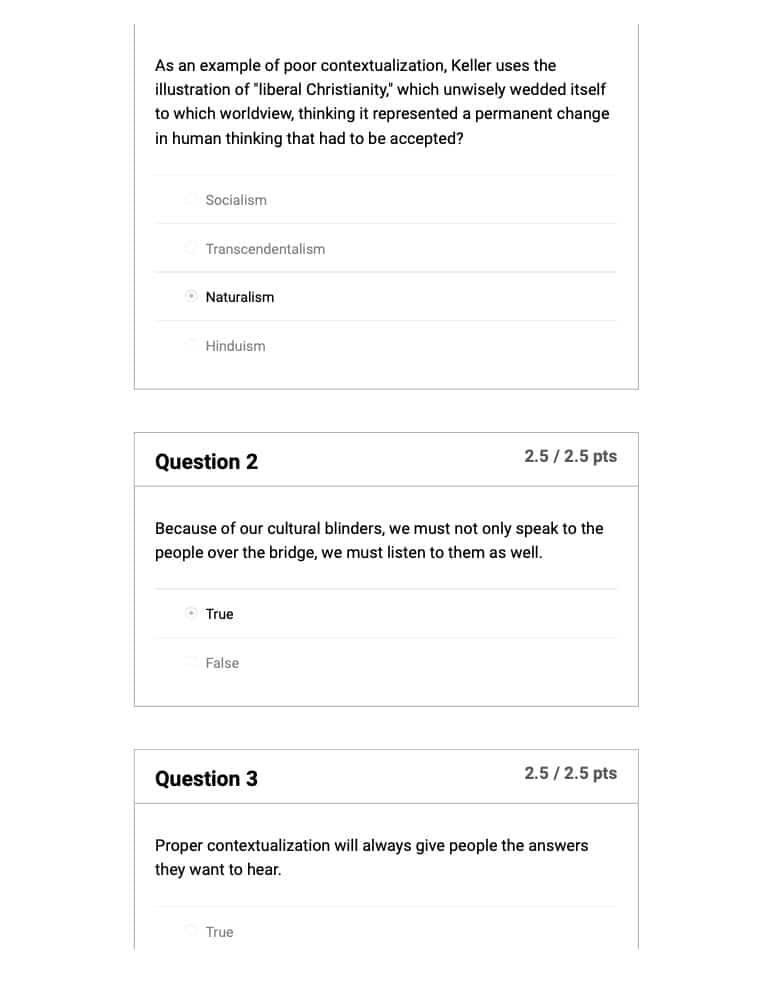RLGN 210 Quiz 4 Foundations of Contextualization
Covers the Learn material from Module 4: Week 4.
- As an example of poor contextualization, Keller uses the illustration of “liberal Christianity,” which unwisely wedded itself to which worldview, thinking it represented a permanent change in human thinking that had to be accepted?
- Because of our cultural blinders, we must not only speak to the people over the bridge, we must listen to them as well.
- Proper contextualization will always give people the answers they want to hear.
- The Bible and culture are equally authoritative sources of truth, and thus we may use the Bible to correct a culture, but we can also use the culture to argue that parts of the Bible are now obsolete.
- A Church should avoid making radical changes to historic Christian doctrine in the name of contextualizing to its culture.
- Effective contextualization addresses culture in the broadest sense of the word, along the maximum surface area.
- Keller asserts that the Scriptures have supreme authority, and are thus always right. But a Christian communicator’s understanding of the Bible may definitely be wrong, and therefore must always be open to being corrected.
- Does Keller believe there can be universal, culture-free expressions of the biblical teachings?
- Interactions with different cultures hinder our ability to come to a more solid biblical Christianity, because by emphasizing human traditions and expressions, we deteriorate the authority of the Scriptures.
- Contextualization is based on the idea of a nonauthoritative Bible, which may be shaped in different ways by different cultures.
- The main purpose of contextualizing the gospel is to change someone’s superficial behavior—for example, the music they listen to or the clothes they wear.
- Does Keller consider contextualization unavoidable?
- Keller indicates that interaction with different cultures should lead Christians to…
- In the chapter, Keller uses the Western phenomenon of “church hoppers,”—people who attend a variety of churches and don’t join or fully enter any of them—as an example of…
- Keller argues that because all gospel ministry and communication is already heavily adapted to a particular culture…
- How does Keller believe we should use this contextualizing bridge?
- Undercontextualizing is when we fail to adequately or accurately adapt our gospel presentation to the culture, and therefore make it unnecessarily alien to our listeners.
- In response to a lack of fruitfulness in ministry, the appropriate response for the minister is to recognize that, as Keller says, “the people of the city are too spiritually proud and hardened.”
- Since gospel communicators should seek to correct their hearers’ cultural beliefs with the gospel, they need not seek to correct their own understanding of the gospel through interaction with different cultures.
- How Does Keller De\ne “contextualization?”
